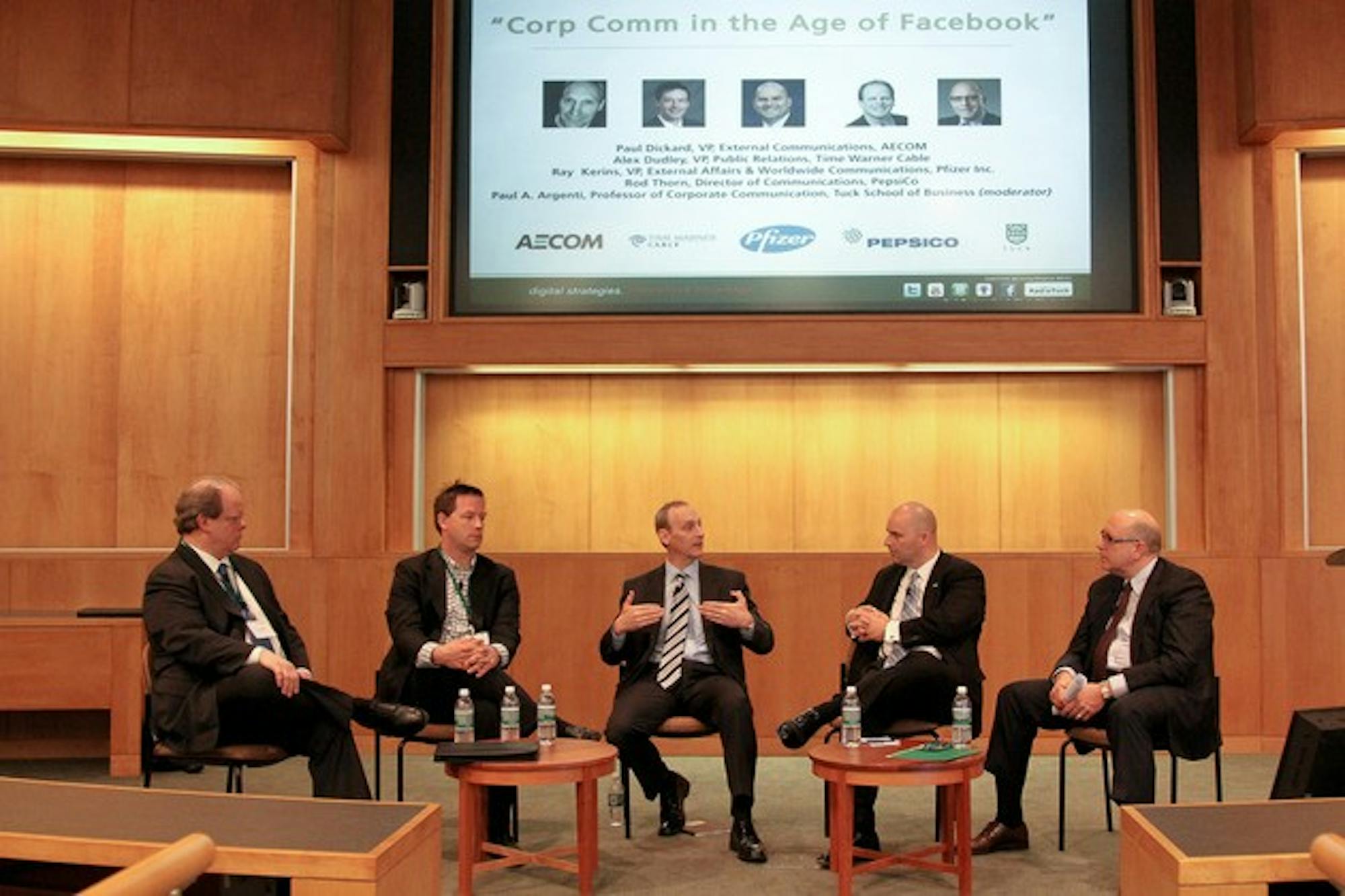Paul Argenti, a corporate communication professor at the Tuck School of Business and the panel's moderator, began the discussion by noting the significant and irreversible impact social media sites like Facebook, Twitter, LinkedIn and Tumblr have made on the professional world and the general public.
"Certainly, the opening up of these channels has led to a mass democratization of information and knowledge," he said.
While the four panelists agreed that these new forms of social media represent a communication revolution, they differed when assessing the scope and equity of these innovations.
Social media is an asset that can enlighten the public about new programs, according to Ray Kerins, the external affairs and worldwide communications vice president of Pfizer.
Dudley agreed with Kerins, and explained that social media has changed the "interface" of public communications.
"We can no longer opt for a total control of the message, but we must give up this notion of control in favor of engagement with our customers," Dudley said. Pfizer, for example, has used blogs and similar "channels" to ease consumer concerns, Kerins said.
"[Pfizer was] able to calm a lot of people when we publicized our new policy that we would give out free drugs to anyone who was on a prescription and who could not afford them," he said.
Social media often influences and targets young customers, according to panelist Rod Thorn, director of communications at Pepsico.
"We have customers who sit around and tweet all day," he said. "At the same time, most of Pepsico's own employees work in heavy-duty factories or drive trucks. They've got goggles and ear protection equipment on."
While advancements in social media facilitate communication among those familiar with such tools, it may further alienate those unaccustomed to them, Thorn said. Social media can seem "scary" because it renders previously undisclosed aspects of corporate decision-making "transparent to the public," Paul Dickard, vice president of external communications for AECOM, said. The shift poses a formidable threat to companies' reputations, according to Dickard.
"In essence, these forms of communication are lifting the veil on how each company works," he said.
Dickard recalled a particular incident at Ingersoll-Rand, a global diversified industrial manufacturer at which he previously worked, when a blogger uploaded a video that went viral and hurt the company's reputation. The blogger picked one of the company's "Kryptonite locks" with a pen and released information regarding the quality of the company's products, Dickard said.
"This was before the days of YouTube, but just this one video caused people to vilify [Ingersoll-Rand]," Dickard said. "The situation spread like wildfire."
In response, Ingersoll-Rand ultimately launched a "Kryptonite blog," which was used to answer questions, resolve misunderstandings and eventually appease dissatisfied customers, he said.
"We thought about making a press statement, but we soon realized that, they were largely artifacts of the past," Dickard said.
Due to strict FDA regulations on pharmaceutical companies, those corporations cannot use social media to their advantage in the same way that other industries do, Kerins said. He applauded Pfizer's efforts to establish a "foundation of engagement" with customers by utilizing different forms of social media, despite the restrictions.
The panel also explored the relationship between social media and advertising. Advertising is growing in significance since consumers do not trust corporate-delivered messages nearly as much as they trust themselves and other consumers, according to Thorn.
Although there are many benefits of social media websites, there is no risk-free way to embrace such tools because they bring unpredictable consequences, Dudley said. Due to this uncertainty, many businessmen still shy away from using social media in professional settings, he said.
The panel discussion, "Corp Comm in the Age of Facebook," was part of Tuck's Britt Technology Impact Series and took place in Raether Hall.




